In 1998, when Anita Ahuja and Shalabh Ahuja launched Conserve India, an NGO that aimed at recycling plastic and enabling efficient waste management, with no ties to the local authorities, they had no idea that in less than a decade their cause would take them global.
Starting small in Delhi, they quickly learned that their biggest hurdle was recycling plastic. After trying various ideas, they hit upon the solution – they would recycle the plastic waste (usually bags) into sheets of plastic that would later be used to create and sell jewellery. The project not only solved a huge waste management issue, but created jobs and helped generate incomes for some of the city’s poorest communities. Today, Conserve India bags are sold all over the world and the proceeds are pumped into social welfare projects like a school for the underprivileged, a health clinic for their workers, and loans for Conserve employees to start their own businesses.
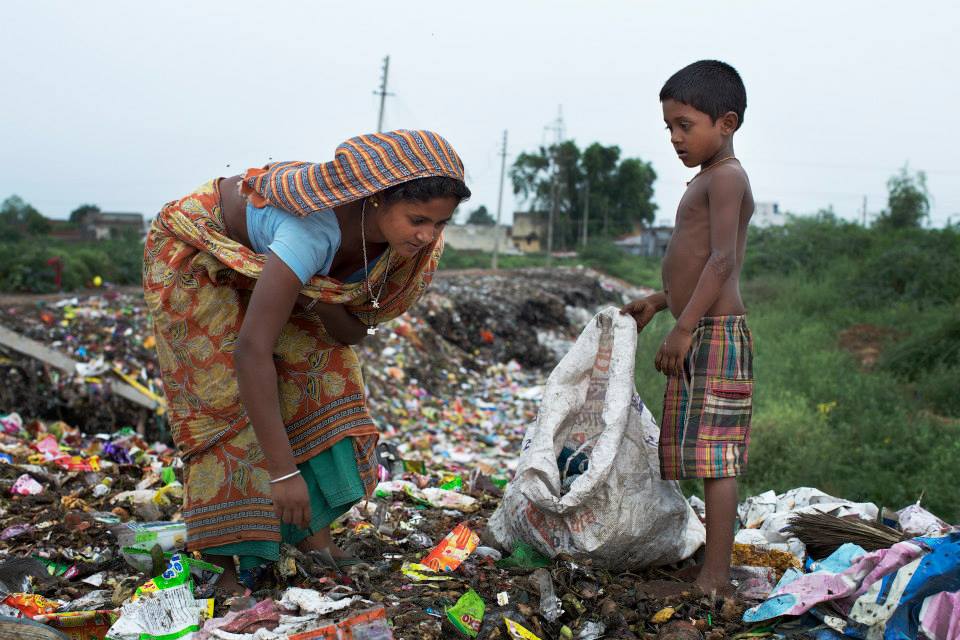
We had the chance to chat to Anita Ahuja about the great work that her team—which include Shalabh and Kanika—does.
“We soon realized that the real problem was plastic.”
We were a company dealing with solid waste management before the plastic project. Plastic has been polluting the earth more than any other waste. Hundreds of cows die every day having ingested polythene, marine life is suffering, the soil is suffering – the problem with plastic is global. We had to come up with a solution to manage this waste in a responsible manner.
After much experimentation, handmade recycled plastic (HRP) was born. This new material led us to an array of products. We started developing handbags, belts, footwear, and even lampshades from this material. The possibilities are endless.
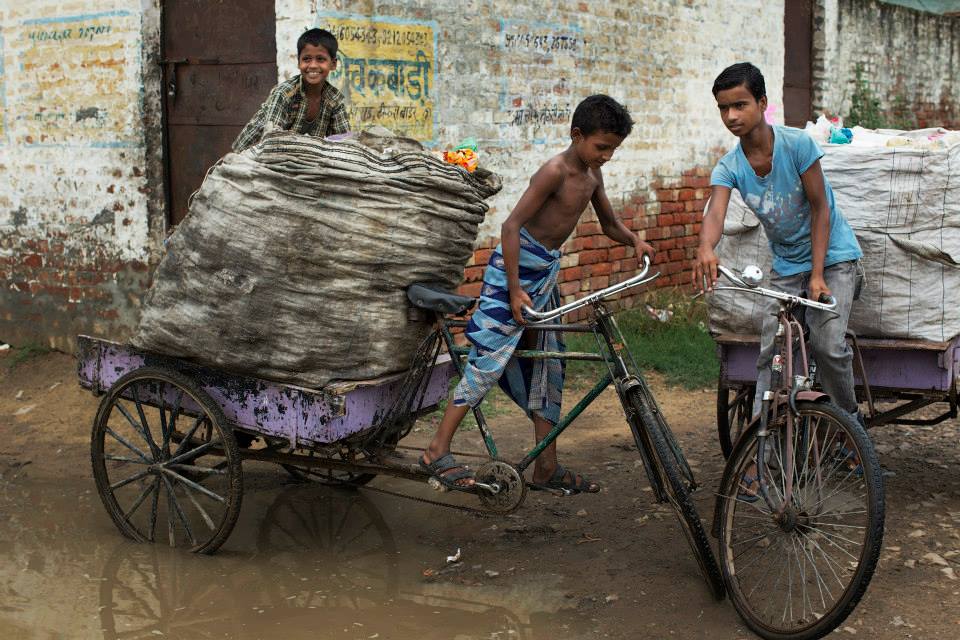
Impact (2005 – 2014)
- Upcycled 4043 tonnes of plastic
- Provided training to 500 people
- Helped set up successful SHGs– now supplying to us
Our model worked on the triple bottom line – People, planet, products. Hundreds of ragpickers have been trained over the years and some have even started their own manufacturing units. We would love to see the day when this technology can be used on a larger scale to better combat the problems of waste and unemployment.
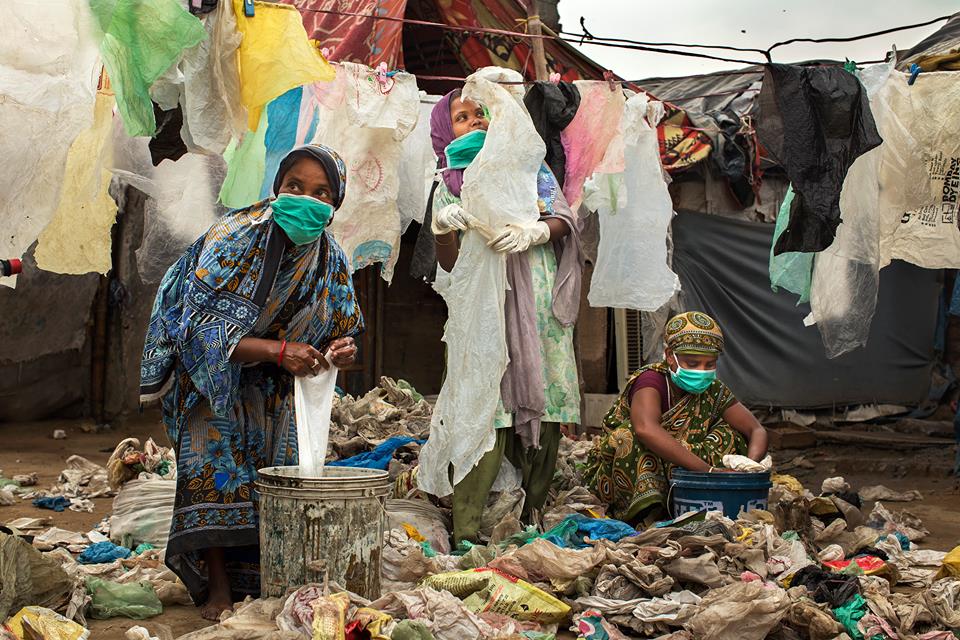
Musings On The Journey
A lot has changed since we started. This was the first time I really saw the poorest of the poor. Living in Delhi, I have always lived in a giant bubble. When I first visited the slums, I knew this project had to be run to profit the community. Waste was all they had. We taught them how to use waste as a resource and earn a sustainable living. Since then, I have always wanted to do projects that make a difference to this marginalized section.
Perfecting The Recycling Process
We kept in mind the tools and utilities slum-dwellers had at their disposal and used minimal external resources.
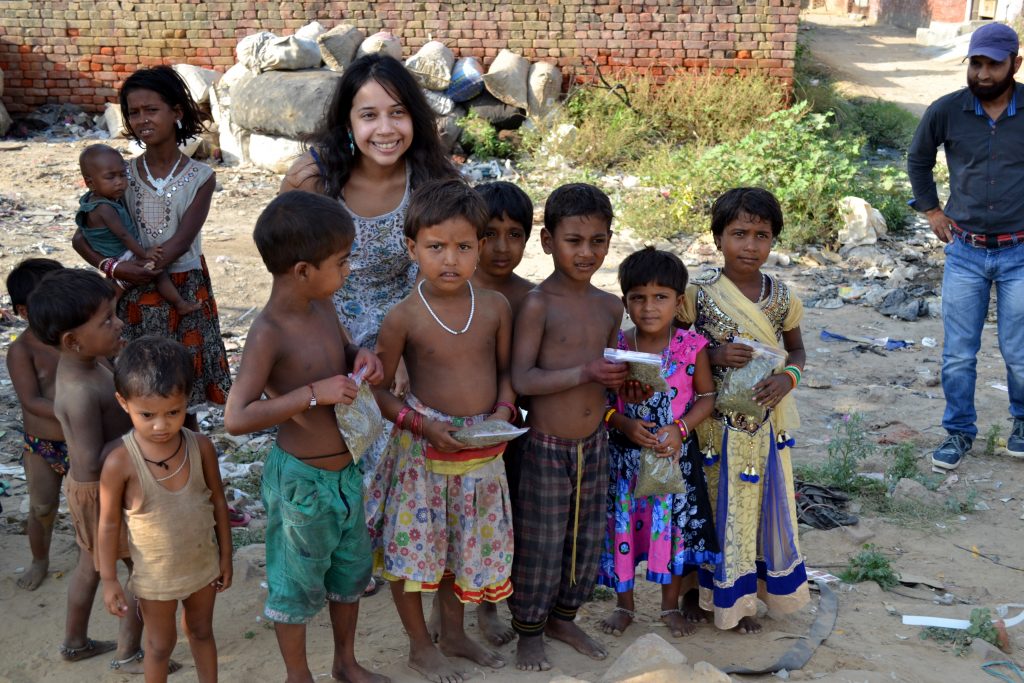
Changing Children’s Lives
The ragpickers who worked for us have narrated several stories of sexual exploitation, kidnappings, and diseases. Their children are left alone in the slum when all the adults go to work. These children did not have access to schooling as the nearest school is more than 10 km away. That’s when we decided to start a stepping school for these children; to provide some learning, but more of an environment where the children could feel safe.
Most parents enrolled their children as this ensured them getting at least one meal a day. The school has faced several challenges through communal tensions, riots, and depleted funds. But a group of ragpickers have ensured that the school keeps running as they believe that that is the only way their children can lead better lives.
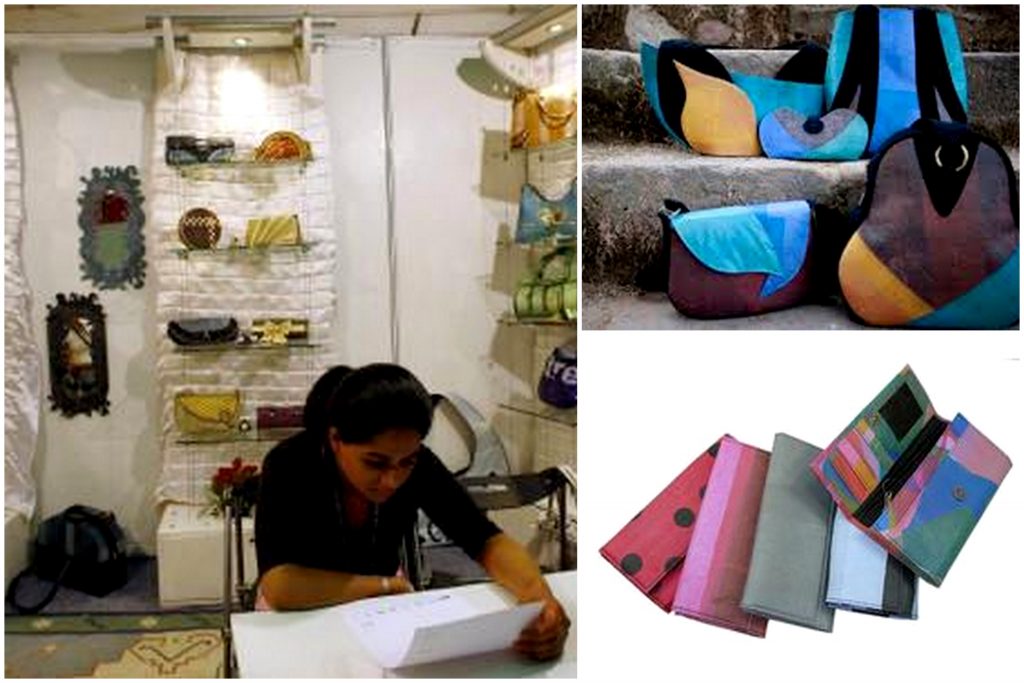
What The Future Holds
We would love to dispense this technology to every corner of the world. We have proved that it’s a sustainable business model. We are open to replication offers, new product development schemes, and further R&D for material improvement.
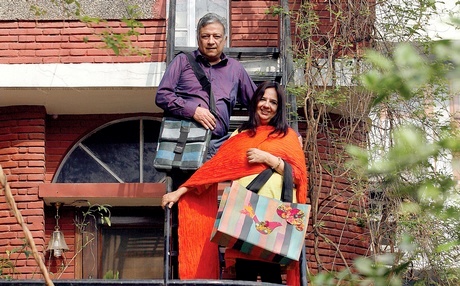
It’s A Team Effort
We were supported by several major international organizations initially via grants. But as product fabrication started, we quickly turned to the export of products to secure a fixed revenue for the working of the organization. The Fair Trade forum backed us extensively, and we have several Fair Trade buyers who have bought our products over the years. We’ve had interns coming in from design schools and business schools from all over the world, and several even from corporate organizations. These interns have brought in so much knowledge, which has enabled Conserve India to grow at this rate. We are now looking to enter the Indian market and would love to find partners who we could collaborate with.
